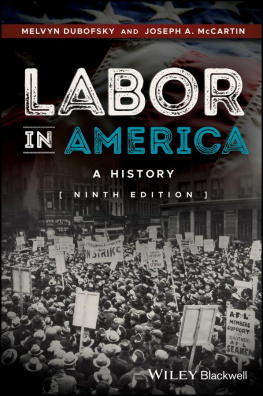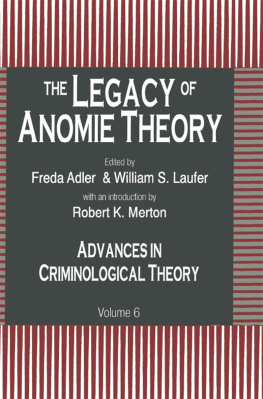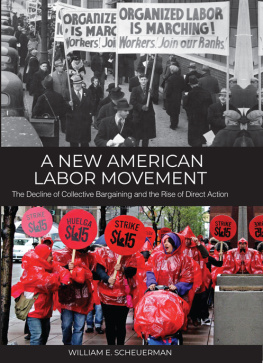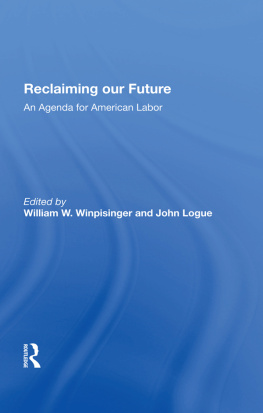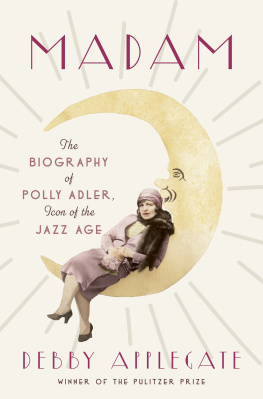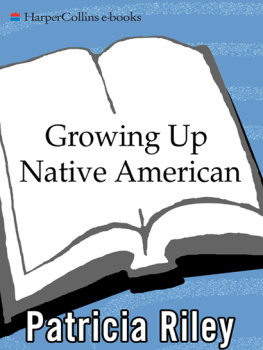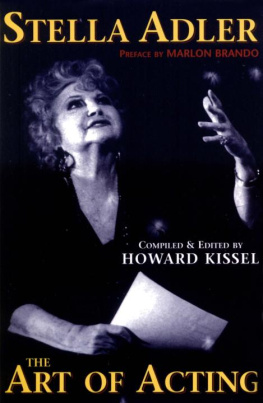William M. Adler - The Man Who Never Died: The Life, Times, and Legacy of Joe Hill, American Labor Icon
Here you can read online William M. Adler - The Man Who Never Died: The Life, Times, and Legacy of Joe Hill, American Labor Icon full text of the book (entire story) in english for free. Download pdf and epub, get meaning, cover and reviews about this ebook. year: 2011, publisher: Bloomsbury, genre: Politics. Description of the work, (preface) as well as reviews are available. Best literature library LitArk.com created for fans of good reading and offers a wide selection of genres:
Romance novel
Science fiction
Adventure
Detective
Science
History
Home and family
Prose
Art
Politics
Computer
Non-fiction
Religion
Business
Children
Humor
Choose a favorite category and find really read worthwhile books. Enjoy immersion in the world of imagination, feel the emotions of the characters or learn something new for yourself, make an fascinating discovery.

- Book:The Man Who Never Died: The Life, Times, and Legacy of Joe Hill, American Labor Icon
- Author:
- Publisher:Bloomsbury
- Genre:
- Year:2011
- Rating:5 / 5
- Favourites:Add to favourites
- Your mark:
- 100
- 1
- 2
- 3
- 4
- 5
The Man Who Never Died: The Life, Times, and Legacy of Joe Hill, American Labor Icon: summary, description and annotation
We offer to read an annotation, description, summary or preface (depends on what the author of the book "The Man Who Never Died: The Life, Times, and Legacy of Joe Hill, American Labor Icon" wrote himself). If you haven't found the necessary information about the book — write in the comments, we will try to find it.
William M. Adler: author's other books
Who wrote The Man Who Never Died: The Life, Times, and Legacy of Joe Hill, American Labor Icon? Find out the surname, the name of the author of the book and a list of all author's works by series.
The Man Who Never Died: The Life, Times, and Legacy of Joe Hill, American Labor Icon — read online for free the complete book (whole text) full work
Below is the text of the book, divided by pages. System saving the place of the last page read, allows you to conveniently read the book "The Man Who Never Died: The Life, Times, and Legacy of Joe Hill, American Labor Icon" online for free, without having to search again every time where you left off. Put a bookmark, and you can go to the page where you finished reading at any time.
Font size:
Interval:
Bookmark:
Land of Opportunity:
One Familys Quest for the American Dream in the Age of Crack
Mollies Job:
A Story of Life and Work on the Global Assembly Line
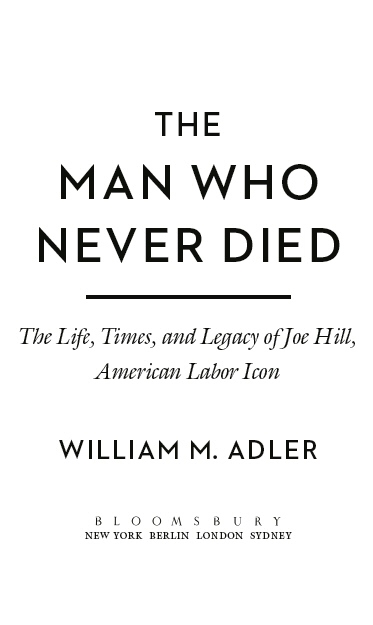
Copyright 2011 by William M. Adler
All rights reserved. No part of this book may be used or reproduced in any manner whatsoever without
written permission from the publisher except in the case of brief quotations embodied in critical articles
or reviews. For information address Bloomsbury USA, 175 Fifth Avenue, New York, NY 10010.
Published by Bloomsbury USA, New York
Lyrics from Ghost of Tom Joad by Bruce Springsteen. Copyright 1995 Bruce Springsteen (ASCAP).
Reprinted by permission. International copyright secured. All rights reserved.
Joe Hill, by Earl Robinson and Alfred Hayes. Words and Music by Earl Robinson and Alfred Hayes.
Copyright 1938, 1942 Universal Music Corp. Copyright renewed and assigned to Universal Music Corp.
and Music Sales Corporation. All rights reserved. Used by permission. Reprinted by permission of Hal
Leonard Corporation.
Music by Earl Robinson, words by Alfred Hayes. Copyright 1938 (renewed) by Music Sales Corporation (ASCAP) and MCA Music Publishing. International copyright secured. All rights secured. Reprinted by permission.
LIBRARY OF CONGRESS CATALOGING-IN-PUBLICATION DATA
Adler, William M.
The man who never died : the life, times, and legacy of Joe Hill, American labor icon / William M.
Adler.1st ed.
p. cm.
Includes bibliographical references and index.
ISBN-13: 978-1-59691-696-8 (hc)
1. Hill, Joe, 1879-1915. 2. Working classUnited StatesSongs and music. 3. Folk singersUnited
StatesBiography. I. Title.
HD8072.A35 2011
331.88'6092dc22
[B]
2011009821
First published by Bloomsbury USA in 2011
This e-book edition published in 2011
E-book ISBN: 978-1-60819-285-4
www.bloomsburyusa.com
For Robin and Zeke
and
For Peter R. Decker
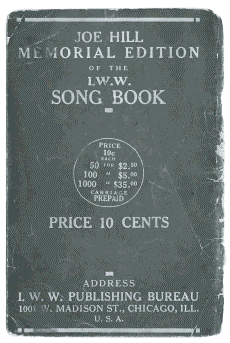
You dont remember the Wobblies. You were too young. Or else not even born yet. There has never been anything like them, before or since They were workstiffs and bindlebums like you and me, but they were welded together by a vision we dont possess. It was their vision that made them great. And it was their belief in it that made them powerful. And sing! You never heard anybody sing the way those guys sang!
JAMES JONES, FROM HERE TO ETERNITY , 1951
These people do not belong to any country, no flag, no laws, no Supreme Being. I do not know what to do. I cannot punish them. Listen to them singing. They are singing all the time, and yelling and hollering, and telling the jailers to quit work and join the union. They are worse than animals.
SAN DIEGO CHIEF OF POLICE KENO WILSON, 1912
I dreamed I saw Joe Hill last night
Alive as you and me.
Says I, But Joe, youre ten years dead.
I never died, says he .
I never died, says he .
ALFRED HAYES AND EARL ROBINSON,
JOE HILL, 1936
CONTENTS
I
II
III
INTRODUCTION
It was a funeral the likes of which Chicago had never seen. As early as dawn they began gathering, a great singing swarm of humanity, tens of thousands of the citys dispossessed and disinherited. The ghetto, the slums, the lodging house quarters and the manufacturing districts are buzzing with preparations, the Chicago Daily Tribune reported that morning, adding that hand-bills in a dozen different languages had urged attendance at the rites. By ten oclock, when the service began, five thousand celebrants, not just the poor but also intellectual parlor radicals and leftists of many stripes, including anarchists, unionists, Socialists, nihilists, and ordinary, nondenominational wage slaves bums and hoboes generally, of whom less than 10 per cent were American, the New York Times sniffedwere packed into every seat and wedged into every cranny along the back and side walls of the West Side Auditorium. It was Thursday, November 25, 1915, an unseasonably warm Thanksgiving morning; already the temperature had climbed into the fifties, and the windows of the great second-floor hall were opened wide, and verse after verse, song after song, cascaded outside the block-long building.
Workers of the world, Awaken,
Break your chains, Demand your rights.
All the wealth you make is taken
By exploiting parasites.
Shall you kneel in deep submission
From your cradles to your graves?
Is the height of your ambition
To be good and willing slaves?
Outside the West Side Auditorium, at the intersection of Taylor and South Racine, a milling and singing throngone writer called it a mob of thirty thousand people and reported the streets jammed from curb to curb for over a mile and all traffic at a haltechoed the verses resounding from the upstairs hall. As the song built to its final verse, the mighty street chorale swelled to a crescendo.
Workers of the world, awaken!
Rise in all your splendid might;
Take the wealth that you are making,
It belongs to you by right.
No one will for bread be crying,
Well have freedom, love and health.
When the grand red flag is flying
In the Workers Commonwealth.
The grand red flag belonged to their union, the Industrial Workers of the World (IWW). A union, yes, but it might better be described (in its own vernacular) as a loose confederation of workstiffs and bindlebums: hard-rock miners and muckers, timberbeasts, lint-heads, shovel stiffs and straw cats, fruit tramps, dock wallopers, pond monkeys, sewer hogs, and stump ranchers. They called themselves Wobblies, though no one is sure why.
The IWWs heyday lasted for only a brief, electrifying moment at the dawn of the twentieth century: when industrial capitalism was new and raw and brutal, and when the unions vision of a new worker-controlled orderan industrial democracyseemed, if not on the verge of becoming reality, not preposterous either.
The idea of industrial democracy was as subversive as it was simple: plain folk running society for their own benefit, as one historian distilled it; socialism with its working clothes on, as William Big Bill D. Haywood, a founder of the IWW, liked to say. More explicitly, the program called for all workers to form industrial unions under the scarlet-and-black standard of the IWW, the One Big Union. Eventually the IWW would call a general strike. Capitalism would screech to a halt like traffic on the West Side of Chicago on that Thanksgiving morning. Industrial unions would take over the machinery of production in the United States, not for profit but for the public good. From there, the workers commonwealth would ripple across the oceans.
Where you stood on the concept of industrial democracy depended on whether you sat in a passenger coach or a boxcar. To its legion of critics who rode the rails in comfort, the IWW was a toxic brew of feckless ideology and reckless imagination. Americas most damnable enemy and Americas cancer sore were representative sentiments. And yet the Wobblies struck a deep, responsive chord among hundreds of thousands of disenfranchised and unskilled laborers, particularly in the raw, extractive industries of the West, where the economy was unstable, the jobs were transitory, and workers saw themselves regarded by employers as beasts of burden devoid of humanity.
THE FUNERAL SERVICE on that warm Thanksgiving day in Chicago was testimony to the power of song, a power the IWW had recognized right from its start. We have been naught, the delegates to the 1905 founding convention sang. We shall be all. Wobblies sang in jails, on picket lines, in fields, factories, and mines, in train yards and city streets and hobo jungles. The very act of mass singing seemed to embolden and inspire people of varied backgroundsemigrants from different parts of the world, who spoke different languages, whose skins were of different colorto unite under the IWW flag for the common goal of social and economic justice. They had never heard the song before, the novelist B. Traven wrote of a group of strikers, but with the instinct of the burdened they felt that this was their song, and that it was closely allied to their strike, the first strike of their experience, as a hymn is allied to religion. They didnt know what the IWW was, what a labor organization meant, what class distinctions were. But the singing went straight to their hearts.
Next pageFont size:
Interval:
Bookmark:
Similar books «The Man Who Never Died: The Life, Times, and Legacy of Joe Hill, American Labor Icon»
Look at similar books to The Man Who Never Died: The Life, Times, and Legacy of Joe Hill, American Labor Icon. We have selected literature similar in name and meaning in the hope of providing readers with more options to find new, interesting, not yet read works.
Discussion, reviews of the book The Man Who Never Died: The Life, Times, and Legacy of Joe Hill, American Labor Icon and just readers' own opinions. Leave your comments, write what you think about the work, its meaning or the main characters. Specify what exactly you liked and what you didn't like, and why you think so.

